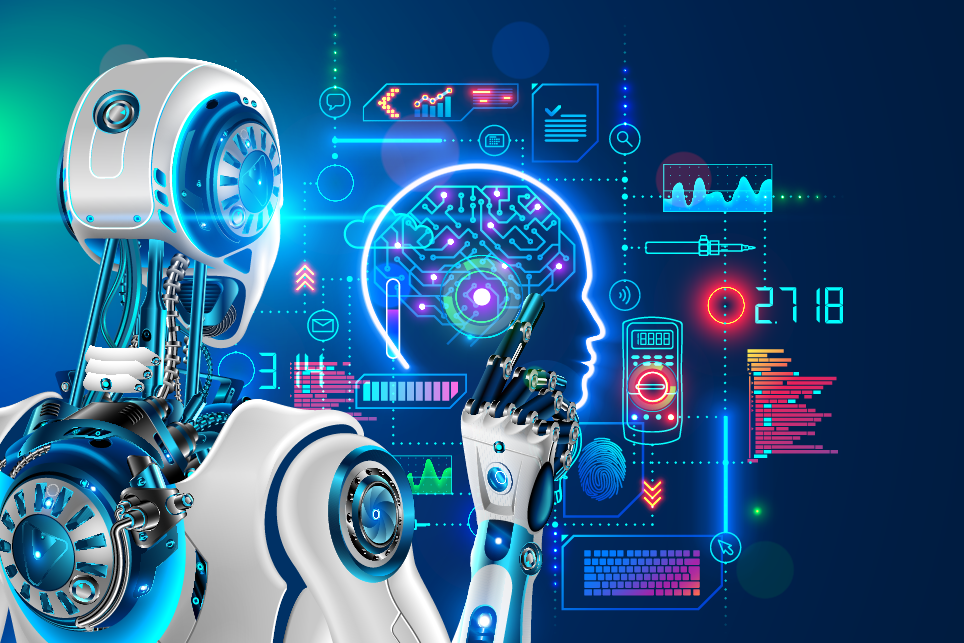Artificial Intelligence (AI) has emerged as a transformative force in sustainable technology, propelling advancements in resource optimization, energy efficiency, waste management, and environmental conservation. As AI continues to evolve and permeate various industries, its potential for driving sustainable solutions becomes increasingly evident. In this pillar content, we will delve into the profound impact of AI on sustainable technology, exploring its underlying principles, benefits, and real-world applications that are driving positive change.
Section 1: Understanding Artificial Intelligence and Sustainability
1.1 Defining Artificial Intelligence: Artificial Intelligence refers to the simulation of human intelligence in machines, enabling them to analyze data, learn from patterns, make decisions, and automate complex tasks. AI encompasses various subfields such as machine learning, deep learning, natural language processing, and computer vision, which collectively provide the tools and techniques for sustainable technology development.
1.2 The Relevance of AI in Sustainability: The intersection of AI and sustainability is vital in addressing the pressing challenges faced by our planet. AI offers advanced capabilities in data processing, pattern recognition, and optimization, making it an ideal technology for enhancing resource efficiency, minimizing waste, and promoting eco-friendly practices. By harnessing AI’s potential, organizations and communities can strive towards a more sustainable future.
Section 2: Benefits of AI in Sustainable Technology
2.1 Resource Optimization and Efficiency: AI-powered systems enable precise monitoring, analysis, and optimization of resource usage. By harnessing the power of AI algorithms, organizations can identify inefficiencies, reduce energy consumption, optimize water usage, and streamline operational processes. For example, AI-driven smart grids dynamically balance energy supply and demand, ensuring efficient utilization and minimizing wastage.
2.2 Precision Agriculture and Sustainable Food Production: AI plays a pivotal role in revolutionizing agriculture towards greater sustainability. By combining data from soil sensors, weather patterns, and crop health monitoring, AI algorithms can provide valuable insights to farmers. This empowers them to optimize irrigation schedules, apply fertilizers judiciously, and make informed decisions on crop management. As a result, resource wastage is minimized, crop yields are enhanced, and environmental impact is reduced.
2.3 Intelligent Transportation Systems for Sustainable Mobility: AI enables the development of intelligent transportation systems that enhance mobility while reducing environmental impact. AI algorithms optimize traffic flow, facilitate efficient route planning, and enable predictive maintenance for vehicles. Additionally, AI-driven solutions promote the adoption of electric vehicles, shared mobility services, and multimodal transportation, contributing to reduced emissions and improved overall transportation efficiency.
2.4 Waste Management and Recycling: AI technology is transforming waste management by automating and optimizing waste sorting and recycling processes. AI-powered robots, equipped with advanced sensors and computer vision capabilities, can accurately identify and segregate different types of waste materials. This streamlines recycling operations, increases recycling rates, and reduces the burden on landfills, promoting a circular economy.
Section 3: Real-World Applications of AI in Sustainable Technology
3.1 Energy Optimization and Smart Grids: AI is instrumental in optimizing energy consumption and improving the efficiency of power grids. By analyzing data on energy usage, weather conditions, and consumer behavior, AI algorithms can optimize energy distribution, predict peak demand periods, and facilitate demand-response mechanisms. This leads to reduced energy wastage, enhanced grid stability, and increased integration of renewable energy sources.
3.2 Conservation and Environmental Monitoring: AI-powered solutions are revolutionizing conservation efforts and environmental monitoring. Through the use of remote sensing, satellite imagery, and AI algorithms, researchers can track wildlife populations, monitor deforestation rates, detect illegal activities such as poaching and logging, and assess the health of ecosystems. These insights inform targeted conservation strategies and enable proactive measures to protect biodiversity and preserve natural resources.
3.3 Sustainable Urban Planning: AI plays a crucial role in sustainable urban planning by optimizing infrastructure, energy distribution, and waste management. By analyzing vast amounts of data on population density, transportation patterns, and energy consumption, AI algorithms can assist city planners in designing more efficient and sustainable cities. AI-powered models simulate and predict the impact of different urban development scenarios, enabling policymakers to make informed decisions that prioritize energy efficiency, green spaces, and sustainable transportation options.
3.4 Climate Change Mitigation and Adaptation: AI contributes to climate change mitigation and adaptation efforts by providing valuable insights and predictive capabilities. AI-powered climate models analyze historical climate data, satellite imagery, and sensor readings to identify patterns, predict future climate scenarios, and assess the impact of interventions. This knowledge helps policymakers and organizations develop targeted strategies for reducing greenhouse gas emissions, managing water resources, and implementing resilient infrastructure to adapt to changing climatic conditions.
3.5 Sustainable Supply Chain Management: AI enhances sustainability in supply chain management by optimizing logistics, reducing waste, and promoting ethical sourcing practices. AI algorithms analyze data on supplier performance, transportation routes, and inventory levels to optimize distribution networks, minimize carbon emissions, and reduce waste through better inventory management and demand forecasting. Additionally, AI-powered blockchain technology can enhance transparency and traceability, ensuring sustainable and responsible sourcing practices.
Conclusion
Artificial Intelligence is revolutionizing sustainable technology by enabling resource optimization, enhancing efficiency, and fostering conservation efforts. Its applications span various sectors, including energy, agriculture, transportation, waste management, and urban planning. Through the power of AI, we can create a more sustainable future by making informed decisions, optimizing resource usage, and mitigating the impact of human activities on the environment. As AI continues to evolve, it is crucial to prioritize ethical considerations, data privacy, and responsible use to ensure that sustainable technology powered by AI contributes positively to our planet and society.

